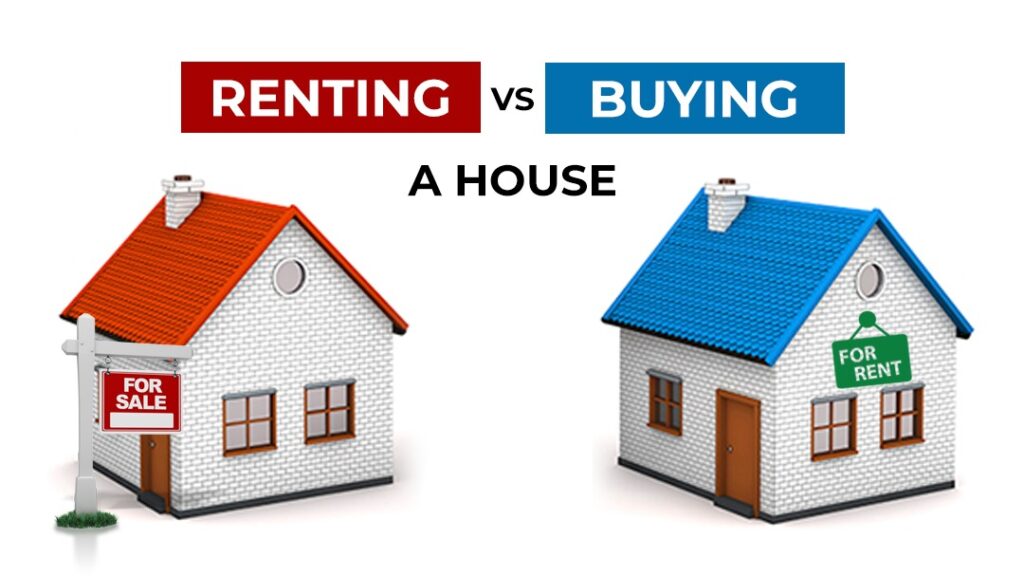Renting vs. Buying: Which is Right for You in Nigeria?
Deciding whether to rent or buy a home is one of the most significant financial decisions many Nigerians will face in their lifetime. Both options have their advantages and disadvantages, and what works best for one person may not be suitable for another. This post will explore the key factors to consider when making this choice, helping you make an informed decision that aligns with your lifestyle and financial goals.
Understanding Your Financial Situation
The first step in deciding whether to rent or buy is to evaluate your financial situation. Here are some key points to consider:
- Initial Costs: Buying a home often requires a substantial down payment, typically 10-20% of the purchase price. Additionally, there are closing costs, inspection fees, and other expenses. Renting, on the other hand, usually requires only a deposit and the first month’s rent, making it a more accessible option for those who may not have significant savings.
- Monthly Payments: Mortgage payments can sometimes be comparable to rent, but they also come with additional costs such as property taxes, homeowner’s insurance, and maintenance fees. In contrast, rental payments typically cover maintenance and repairs, which can provide more predictable monthly expenses.
- Long-term Financial Commitment: Buying a home is a long-term investment that can appreciate over time, potentially providing a profitable return if you decide to sell. However, it also comes with the responsibility of maintaining the property and the risk of market fluctuations. Renting, while often seen as a less stable option, allows for greater flexibility and less financial risk in the short term.
Lifestyle Considerations
Your lifestyle and personal circumstances also play a significant role in this decision:
- Job Stability and Mobility: If you work in a sector with frequent job changes or relocations, renting may be a more suitable option. It allows you to move without the burden of selling a home. Conversely, if you have a stable job and plan to stay in one location for several years, buying may provide more long-term security.
- Family and Space Needs: Consider your family size and needs. If you have children or plan to start a family, you may want the stability of a larger space that you can modify as needed. Buying a home can give you more control over your living environment.
- Community Ties: Homeownership often fosters a stronger sense of community, as you’re more likely to stay in one place and build relationships with neighbors. Renting might lead to more transient living situations, which could impact your social connections.
Market Conditions
Understanding the current real estate market is crucial in making your decision:
- Housing Market Trends: In many Nigerian cities, real estate prices have seen significant fluctuations. If the market is currently a buyer’s market—where supply exceeds demand—you might find good deals on homes. Conversely, if it’s a seller’s market, prices may be inflated, making renting a more appealing option.
- Rental Market: Similarly, examine rental rates in your desired area. In some neighborhoods, rental prices may be high relative to property prices, making buying more attractive. Conversely, if rental prices are low, renting might provide better value.
Pros and Cons of Renting
Pros:
- Lower upfront costs.
- Flexibility to move.
- Less responsibility for maintenance and repairs.
- No exposure to market risks.
Cons:
- No equity building.
- Rent can increase with time.
- Limited control over your living space.
Pros and Cons of Buying
Pros:
- Builds equity over time.
- Potential for property appreciation.
- Greater control over modifications and improvements.
- Stability and predictability in housing costs (with a fixed-rate mortgage).
Cons:
- High initial costs and ongoing expenses.
- Less flexibility to relocate.
- Responsibility for maintenance and repairs.
Making the Decision
Ultimately, the decision to rent or buy comes down to your personal circumstances and preferences. Here are some steps to help you make a more informed choice:
- Evaluate Your Finances: Create a budget that includes all potential costs associated with buying or renting. Consider consulting with a financial advisor to get a clearer picture of your situation.
- Consider Your Future Plans: Think about where you see yourself in the next five to ten years. Are you likely to stay in your current job and city? Do you anticipate changes in your family size or lifestyle?
- Research Local Markets: Spend time understanding the real estate market in your desired area. Look at property values, rental rates, and market trends.
- Consult Professionals: Whether you’re leaning towards renting or buying, consulting with real estate agents, mortgage brokers, or financial advisors can provide valuable insights.
- Trust Your Instincts: Finally, listen to your intuition. Your home is not just a financial investment; it’s a personal space that should feel right for you and your family.
Conclusion
Whether to rent or buy in Nigeria is a decision that should be made carefully, considering both financial implications and lifestyle factors. By evaluating your financial situation, understanding the market, and considering your long-term goals, you can make a choice that suits your needs. Remember, there’s no one-size-fits-all answer—what matters most is finding the right fit for you and your family.

